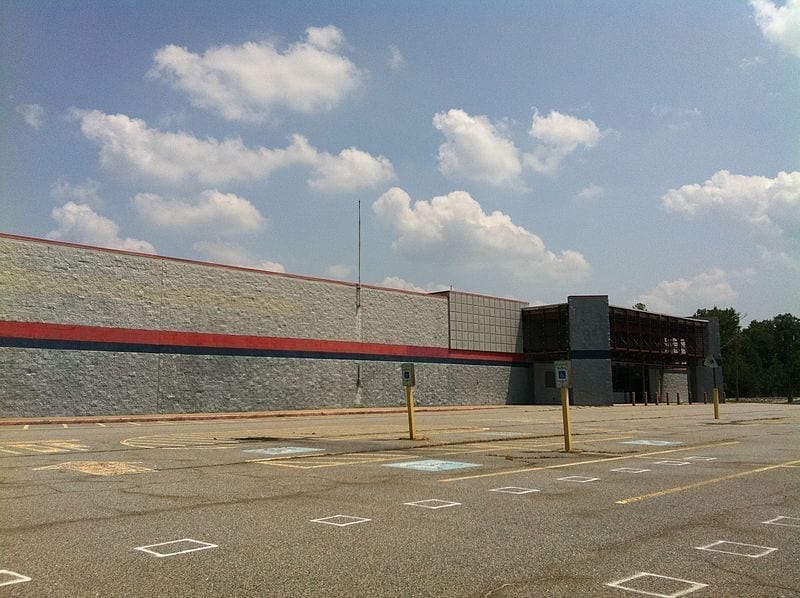Big box businesses across the country are taking advantage of the Dark Store loophole in order to dodge their tax bill and starve communities of revenue.
Our nation’s cities and states work hard to entice businesses to settle within their borders. To attract businesses, municipalities sweeten the pot with tax abatements and favorable legislation such as a low minimum wage. New businesses bring economic opportunity, choices in goods and services, tax income, and especially jobs. But not everything that our neighborhoods reap from these deals is a net positive. Walmart stores, in particular, are accused of causing downtown districts and mom-and-pop shops to shrivel up and blow away. Big chain retailers are even said to correlate with a rise in area hate groups. However, perhaps the most underappreciated abuse doled out by some of the best-known Big Box stores is the dark store tax loophole.
How does it work?
Big retail chain stores pay property taxes. How much they are legally obliged to pay is a matter of dispute. Different sorts of property can be worth vastly different amounts. For example, an abandoned building sitting on a vacant lot is worth very little to a city’s coffers. However, a thriving business selling thousands of dollars worth of merchandise every day is bringing revenue to the area and dropping it in the pockets of the business owners, so the taxes assessed on that property should be much higher, right? After all, businesses take advantage of an area’s infrastructure, such as the roads that their customers and delivery trucks use and the local schools that educate their workers. It’s only fair for businesses to pay taxes, just like everyone else.
Increasingly, big box retailers have been opting out of paying most of their tax obligation by invoking the dark store loophole. Starting around 2008 in Michigan and Indiana, but currently popping up all over the country, the companies that run these huge retail operations have challenged their local government’s assessment of taxable value. Instead, they claim that the fair market value of their property should be calculated by comparison to that of a nearby empty structure of similar size (a dark store), even if that building is gathering dust and starting to fall apart.
To add insult to injury, using the resale value of an abandoned, dark store as the starting point for assessing taxes is useless when many empty structures have lease agreements that prevent them from being sold or used by a competing business. That’s what happened to an empty Walmart in Greenfield, Wisconsin. Walmart restricted other big chains from leasing the site and returning it to usefulness, insuring that a low-value, dark store would serve as a foil against raising the property taxes on thriving big box stores for miles around. If you have a blighted, empty big box on the outskirts of your town that just can’t seem to find a new tenant, it’s fair to wonder if all the other stores are using it to dodge their tax bill.
The dark store loophole is so obviously harmful to communities that even business-friendly, tax-averse Republicans are starting to notice and take a stand. Earlier this summer, a group of Wisconsin mayors convinced state Republicans to introduce legislation closing the dark store loophole.

In the end, it’s a matter of political will. Whether we choose to charge homeowners more in property taxes to compensate for dodgy retailers, cut services like public schools in order to put more money in corporate pockets, or change the law so that businesses contribute to the wellbeing of their communities, is up to our elected officials. Let’s hope we elected some good ones.
Related: Lawlessness
Sources:
Walmart files suit against Town of Sheboygan over tax dispute
Lawmaker wants to close big-box retailers’ dark store loophole
Retailers seek tax cuts with dark store theory
Tax Breaks for Big-Box Stores Can Drain Money From Schools


Join the conversation!